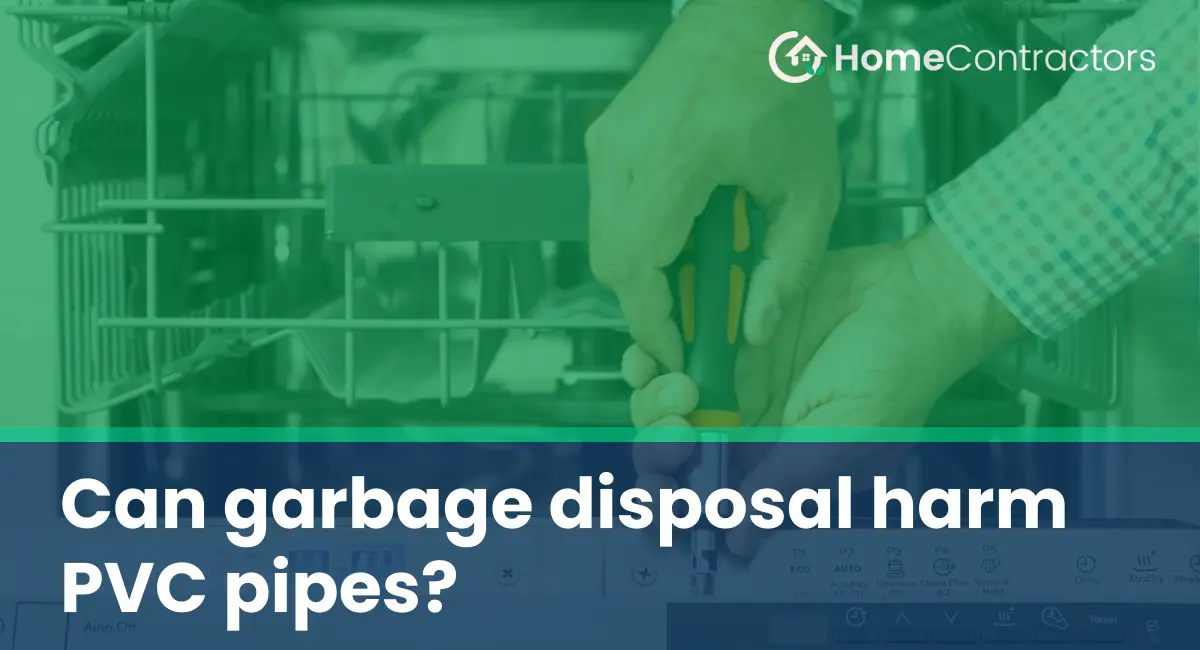Garbage disposals are convenient kitchen appliances that help us dispose of food waste efficiently. However, many homeowners are concerned about whether these devices can cause harm to their PVC pipes. In this article, we will explore the potential risks and provide essential tips to ensure the longevity of your PVC pipes while using a garbage disposal.
Understanding PVC Pipes:
PVC (Polyvinyl Chloride) pipes are commonly used in residential plumbing systems due to their durability, affordability, and resistance to corrosion. They are widely recognized for their ability to withstand high levels of water pressure, making them a popular choice in many households. PVC pipes are designed to be long-lasting if properly installed and maintained.
The Impact of Garbage Disposal on PVC Pipes:
While PVC pipes are generally robust, the continuous usage of a garbage disposal can potentially have negative effects on them if not used correctly. Although PVC is resistant to many household chemicals, certain food items can cause damage. Here are some potential risks to consider:
1. Fat, Oil, and Grease (FOG) Buildup:
One common issue with garbage disposals is the improper disposal of FOG substances. When poured down the disposal, these materials can solidify inside the pipes, leading to blockages and reduced water flow. Over time, the accumulation of FOG can weaken the PVC pipe structure, leading to leaks or even bursts.
2. Fibrous and Starchy Foods:
Certain foods, such as fibrous vegetables (celery, corn husks) and starchy items (potato peels, rice), can cause clogs if not properly processed by the garbage disposal. The fibrous nature of these foods can get wrapped around the blades or tangled within the pipes, potentially resulting in damage.
Preventing PVC Pipe Damage:
To avoid potential harm to your PVC pipes while using a garbage disposal, it is essential to follow these preventive measures:
1. Proper Waste Disposal:
Avoid disposing of large quantities of FOG down the garbage disposal. Instead, collect and discard these substances in the appropriate waste containers. Grease should be allowed to solidify in a separate container before disposal.
2. Food Preparation:
Before running the garbage disposal, remember to remove any fibrous or starchy food items from the waste. These can be placed in a compost bin or disposed of in the regular trash to prevent clogs or damage.
3. Regular Maintenance:
Taking care of your garbage disposal will help extend the life of your PVC pipes. Follow the manufacturer’s instructions for cleansing and routine maintenance, such as grinding citrus fruit peels or ice cubes to remove any buildup or odors efficiently.
4. Plumbing Professionals:
If you are unsure about the proper usage or maintenance of your garbage disposal system, it is always advisable to consult a professional plumber. They can provide expert advice and ensure your plumbing system remains in top shape.
While garbage disposals can offer convenience in our daily lives, understanding their potential impact on PVC pipes is crucial for maintaining a properly functioning plumbing system. By being mindful of what you dispose of and ensuring regular maintenance, you can prevent unnecessary damage to your PVC pipes and avoid costly repairs. Remember, taking a few extra precautions now can go a long way in preserving the longevity of your plumbing system.
